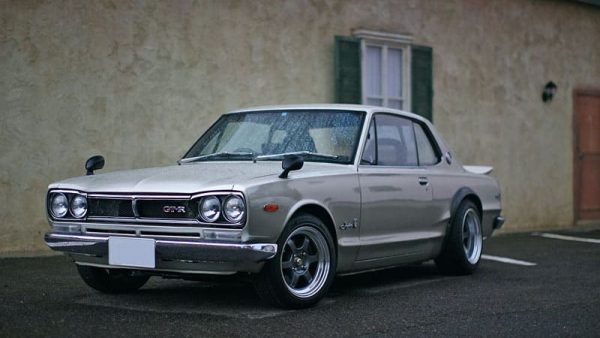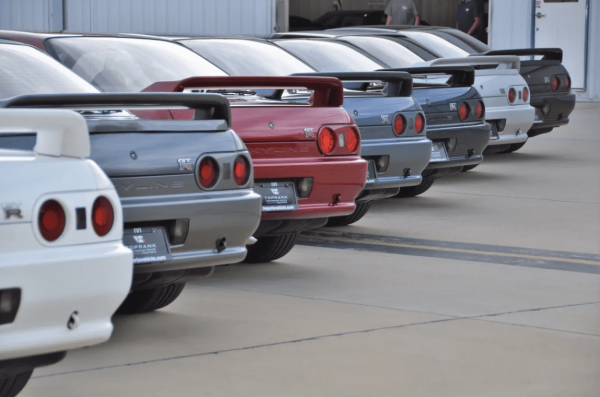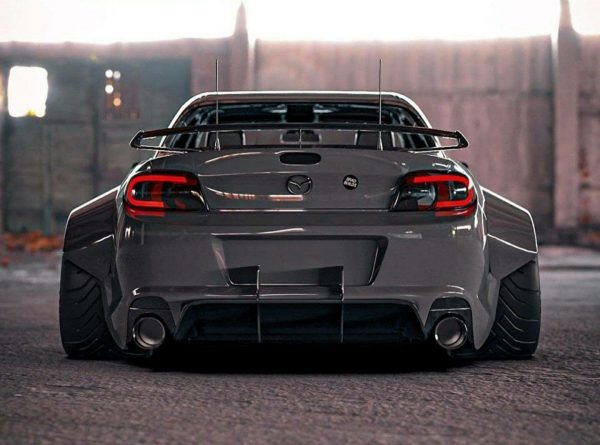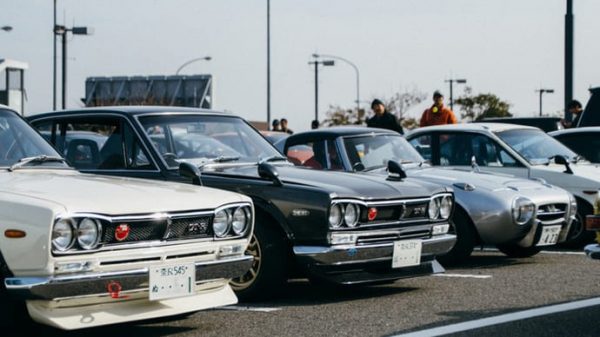A JDM car, short for “Japanese Domestic Market” car, represents an automobile meticulously crafted by Japanese automotive manufacturers exclusively for the Japanese domestic market. These vehicles are purposefully designed and equipped to align with the regulations, preferences, and standards of the Japanese market. JDM cars often showcase distinct attributes, engines, or designs that set them apart from their international counterparts. Enthusiasts and collectors actively seek JDM cars for their unique characteristics and occasionally superior performance.
The Japanese car culture stands as a testament to the fervor and unwavering commitment of automotive aficionados in Japan. This vibrant culture has given rise to a subculture that venerates cars as a medium for self-expression and personal freedom. It encompasses a diverse range of activities, spanning from exhilarating street races and mesmerizing drifting displays to convivial car gatherings and meticulous tuning sessions. This subculture provides a rich tapestry of opportunities for enthusiasts to actively participate and connect with kindred spirits. The Japanese car culture is a constantly evolving, dynamic, and electrifying community that consistently serves as an inspiration to car enthusiasts worldwide.
For those passionate about automobiles, the term “JDM” is likely a familiar one. You may have questioned the significance of JDM, its widespread popularity, and whether JDM cars indeed outshine their counterparts. This article embarks on a thorough exploration of the world of JDM cars, providing an in-depth understanding of this captivating subject. Let’s commence this journey!
Deciphering the Meaning of JDM Cars
If you’ve encountered the term “JDM,” it’s shorthand for “Japanese Domestic Market.” This terminology is employed to describe vehicles meticulously crafted by Japanese automotive manufacturers with the specific intent of being marketed within the Japanese domestic market.
There exists a prevalent misunderstanding regarding JDM, which assumes that any vehicle produced in Japan automatically qualifies as a JDM car. However, this assumption is incorrect. JDM accurately designates vehicles that are both meticulously produced in Japan and exclusively tailored for sale within Japan’s local market. JDM cars are not intended for global distribution.
Are all Japanese Cars Considered JDM?
You now grasp that “JDM” signifies “Japanese Domestic Market,” but you might still ponder whether all Japanese cars fall under the JDM category. As elucidated earlier, there’s a common misconception that presumes every vehicle manufactured in Japan inherently falls into the JDM classification.
Japanese automotive companies manufacture cars for various international markets, encompassing the USA, Europe, Australia, and Asia. The mere assembly of a car in Japan doesn’t automatically grant it JDM status. Essentially, Japan’s domestic market signifies that a car is meticulously designed and fabricated in Japan with the sole intention of being retailed within Japan.
To provide a clearer example, let’s consider the Toyota Supra MKIV. This model was obtainable in the USA and adhered to US regulatory mandates, featuring left-hand drive. This signifies that the car was meticulously engineered and manufactured in Japan with a primary focus on the US market.
Conversely, an alternative variant of the Toyota Supra MKIV was meticulously crafted in accordance with Japanese regulations, custom-tailored for Japan’s local market. The JDM Supra MKIV featured right-hand drive and had a top speed limit of 180 km/hr, in contrast to the USDM Supra MKIV. This distinction underscores that not all Japanese cars qualify as JDM; it hinges on the target market and specific design and production considerations.
Why Do JDM Cars Stand Out?
When it comes to Japanese domestic market cars, automotive enthusiasts frequently question the factors that set JDM cars apart. Several compelling reasons underpin the distinction of JDM cars in comparison to their counterparts, and we’ll elucidate these factors for you:
- Efficiency and Practicality: Japanese automotive manufacturers have meticulously cultivated a reputation for their unswerving commitment to efficiency and practicality. JDM cars consistently deliver exceptional performance when measured against other vehicles.
- Cutting-Edge Designs: JDM cars exude designs that are unmistakably futuristic, distinguishing them from the crowd. These vehicles come equipped with state-of-the-art technology, and it’s commonplace to encounter hybrid technology in many JDM cars.
- Diverse Options: The Japanese domestic market offers a wide spectrum of options to cater to diverse preferences, ranging from family minivans to SUVs. This diversity ensures that there exists a JDM car meticulously tailored to meet the distinctive needs of every individual.
- Smart and Budget-Friendly Alternatives: Japanese cars present astute and cost-effective alternatives to vehicles manufactured in the United States. This renders them a compelling choice for those who seek value without compromising on quality.
In summary, these factors collectively contribute to the well-established reputation of JDM cars as being superior to other vehicles.
The Legal Status of JDM Cars in the United States
Many individuals harbor inquiries about the legal status of JDM (Japanese Domestic Market) cars in the United States and whether these vehicles are admissible. The gratifying reality is that JDM cars are indeed legally permissible in the United States, contingent on a specific prerequisite: the vehicle must be at least 25 years old at the time of its arrival in the United States.
To import a JDM vehicle that is a quarter-century old, you will need to furnish various documents, including a bill of landing, an export certificate, a translated version of the export certificate, an invoice, and complete an ISF (Importer Security Filing) form. Upon the arrival of your JDM car in the US, you can present these documents to the local customs office to expedite the clearance process.
In Summary
You now possess a more comprehensive understanding of JDM cars and the significance of the term “JDM.” While JDM cars are frequently regarded as superior to other vehicles, the 25-year age requirement imposes constraints on the importation of the latest JDM car models into the United States.
In essence, JDM cars are legally admissible in the United States when they satisfy the 25-year age specification, and they are generally perceived as superior to USDM (United States Domestic Market) cars.





